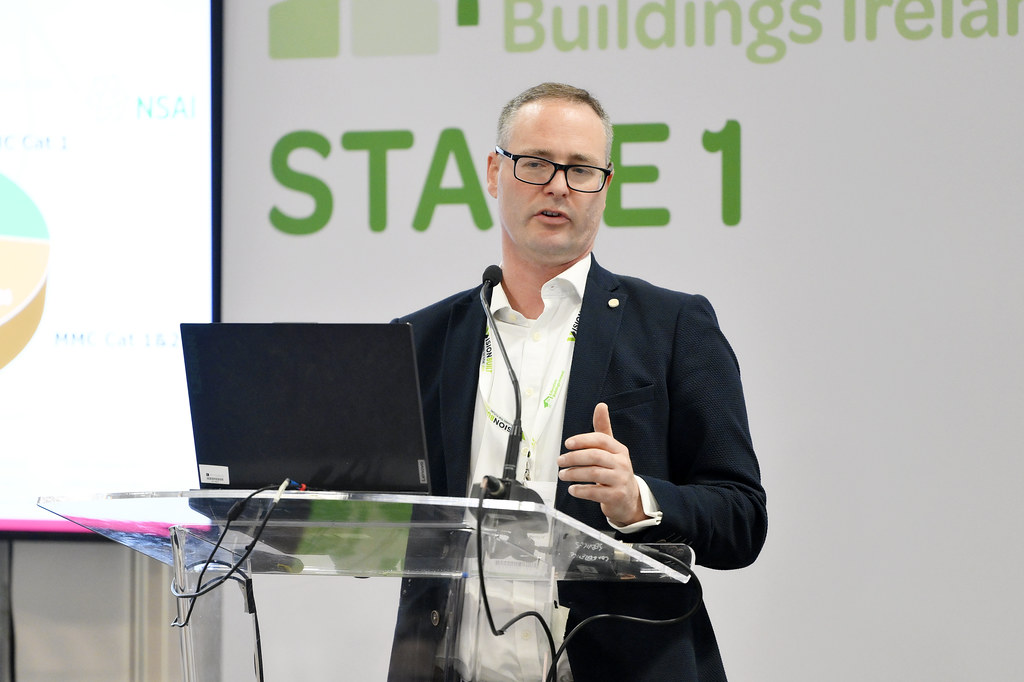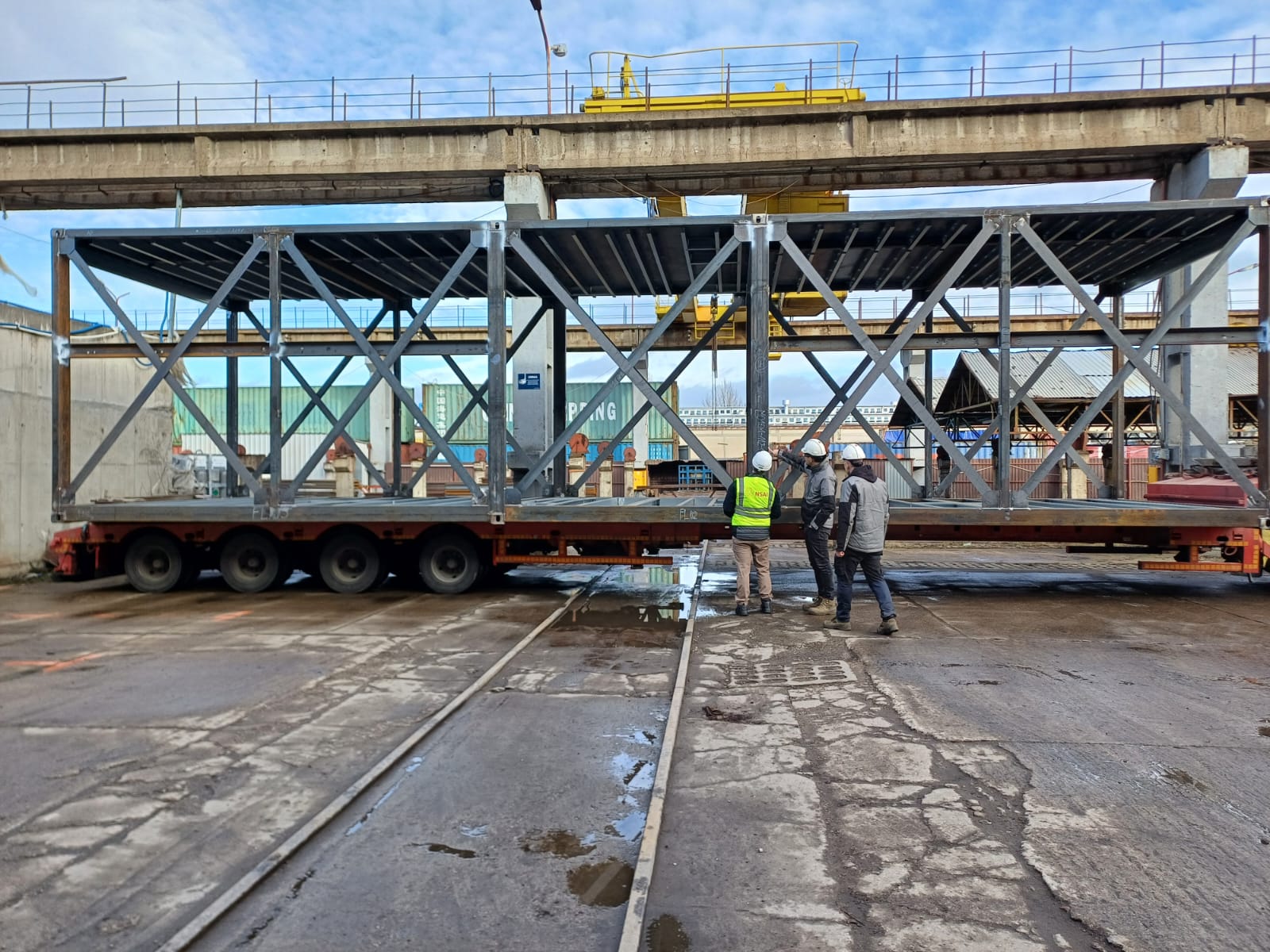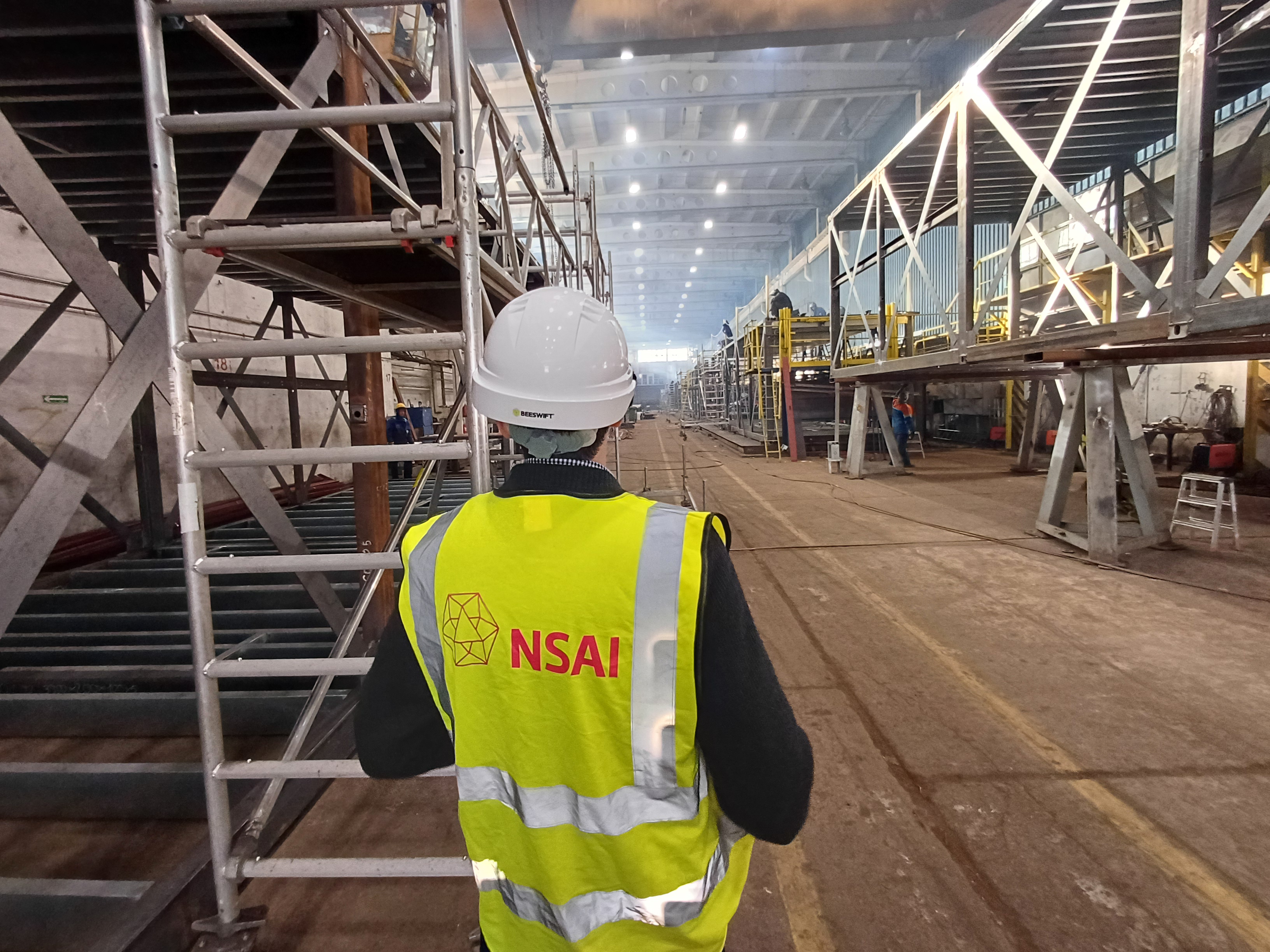- About >
- Thought Leadership >
- Supporting Modern Methods of Construction to meet Ireland’s housing challenge: MMC certification at NSAI
By Martin Searson, Head of Modern Methods of Construction, NSAI
NSAI’s dedicated Modern Methods of Construction (MMC) department supports Ireland’s Delivering Homes, Building Communities 2025 – 2030 new housing plan and the construction industry more generally – through its MMC Agrément Certification process.
As countries across the globe grapple with housing demand, Modern Methods of Construction (MMC) such as offsite manufacturing and modular construction, has massive potential.
Delivering Homes, Building Communities 2025 – 2030 Action Plan includes a target of 300,000 homes over the lifetime of the plan, with a pathway to achieve 60,000 homes annually in 2030 and thereafter. Housing delivery will be achieved through the individual and collective effort of the key delivery partners of the new housing plan. This is where greater adoption of MMC can assist.
Making homes in a controlled factory-based environment can save valuable time. Residential houses typically take between 24 and 32 weeks to fully complete in traditional brick and block. But with Modular Construction, houses can be completed between 6 and 20 weeks (depending on the MMC Building methodology employed) – provided there are extremely high operational controls in both a Factory Production Control (FPC) environment and Onsite during the installation and assembly processes.
Agrément Certification bridges the certification gap by ensuring MMC, as utilised in Ireland, is quality assured through certification for the Irish marketplace.
Martin Searson Head of Modern Methods of Construction
Potential comes with challenges
The Programme for Government and MMC Skills Action Plan published in 2025 recognises the potential of MMC. Along with that potential comes an inherent challenge: the materials, products, manufacturing processes and workmanship incorporated into the building system involved, coupled with the required interfaces needed in MMC, currently do not yet have a long history of use. Furthermore, they do not yet have dedicated standards.
Agrément Certification bridges the certification gap by ensuring MMC, as utilised in Ireland, is quality assured through certification for the Irish marketplace. It also ensures that MMC meets relevant safety, durability and performance standards, as set out in the current Irish Building Regulations and other regulatory requirements.
Technical Guidance Document (TGD) Part D 2013*, The Housing Agency Guide for use of PW-CF2 Public Works Contract for Building Works Designed by the Contractor, and Delivering Homes, Building Communities 2025 – 2030 Action Plan requires participating companies using MMC to have Agrément Certification through the NSAI.
The construction industry has the willingness and capacity for MMC and is further developing its skillset, capability and knowledge to move to greater levels of mass production and operational excellence.
Martin Searson Head of Modern Methods of Construction
Agrément Certification
If you are developing a new or innovative construction building system or product that does not yet have established national standards, you should consider applying for Agrément Certification. In the context of MMC, this might include off-site manufactured 3D-Volumetric modules, Mass Engineered Timber (MET), Insulated Concrete Formwork or Light Gauge Steel (LGS) building systems. When a company applies for Agrément Certification for an innovative building system, the team in the NSAI MMC Certification department assesses it and provides relevant gap analysis for what is required to meet current European and Irish regulations and building requirements.
The criteria for assessment varies from one building system - or proposed building system solution - to another. This is based on existing EU Directives, Irish Building Regulations, standards, Codes of Practice documents for safety, habitability, durability, maintenance and environmental requirements. It is also based on the current Irish Building Regulations and Irish Building Standards’ legal framework, as published by the Irish Government.
The certification process involves several steps, and the time it takes varies depending on the methods involved and the applicants’ timely responsiveness:
- MMC enquiry
- Initial application and kick-off review meeting
- Application assessment and contract scoping
- Technical Assessment Specification (TAS) development
- Factory Production Control (FPC) audits
- Drafting the certificate
- Internal independent technical review
- Subject to a successful assessment: issuing of the Agrément Certificate, and publishing on the NSAI website
The Agrément Certificates for certified-MMC building systems we publish are in accordance with the rules of the European Union of Agrément Institutes for Construction (UEAtc) and current Irish Building Regulations.
Pictured: A member of NSAI's MMC team visiting client, VBC Gael Limited
A commitment that pays off
The time and effort involved in achieving Agrément Certification is like completing a Masters’ degree.
Believe me - it is not a simple one-page checklist.
You must do the reading and the preparation work beforehand and submit supporting documentary evidence for technical assessment. It is a lot of work, but worthwhile.
Through the certification process, you close identified gaps and address findings raised and continue to improve as a business. This gives your firm robustness, stability and potentially economic growth from the proposed building system and is a recognition of continual improvement of your offsite production and onsite assembly processes. Your Agrément Certificate demonstrates to warranty providers, regulators and buyers that your building system can be manufactured on a consistent basis, once the Agremént certificate is adhered to in full.
Making homes in a controlled factory-based environment can save valuable time.
Martin Searson Head of Modern Methods of Construction
A toolkit to ease the burden
To help SMEs in Ireland and abroad understand and prepare for the Agrément certification process in Ireland, my team have created – and continue to develop – an MMC Toolkit.
We hope to reduce companies’ time and research burden and help them understand where they are on the journey and enable them to navigate the certification process.
The toolkit includes:
- handy one-page Infographics such as a roadmap through the process and matrix of building elements
- a Self-assessment questionnaire to help firms decide if they’re ready to apply
- an FAQ section on documentation, timelines and costs
- useful weblinks, to connect with the great work being done by Construct Innovate and Skillnet’s MMC Accelerate, among others
- new and revised Application forms.
We developed the MMC Toolkit with the support of the Department of Enterprise, Tourism and Employment, in conjunction with the policies and documents published by the Department of Housing, Local Government and Heritage, and the Department of Public Expenditure, NDP Delivery and Reform.
Pictured: A member of NSAI's MMC team visiting a client site
The future of MMC
The construction industry has the willingness and capacity for MMC and is further developing its skillset, capability and knowledge to move to greater levels of mass production and operational excellence.
Modular Construction needs to be liveable and functional – with mechanical, electrical, heat, light and fabric finishes completed within it. A building system solution is someone’s home – or perhaps student accommodation, an office, a classroom or a hospital facility. It has to last 60 years plus.
Great progress has been achieved around MMC, but the journey continues as we discover which materials and innovative technologies stand the test of time and which methods become widespread.
Standardisation will be the key that unlocks mass production – though innovation must be facilitated along the way, as the MMC sector evolves.
To view or download any materials within the NSAI MMC Toolki, visit NSAI.ie/MMCtoolkit
Notes:
*Technical Guidance Document (TGD) Part D – Materials and Workmanship 20213 – Schedule D3
Source:



